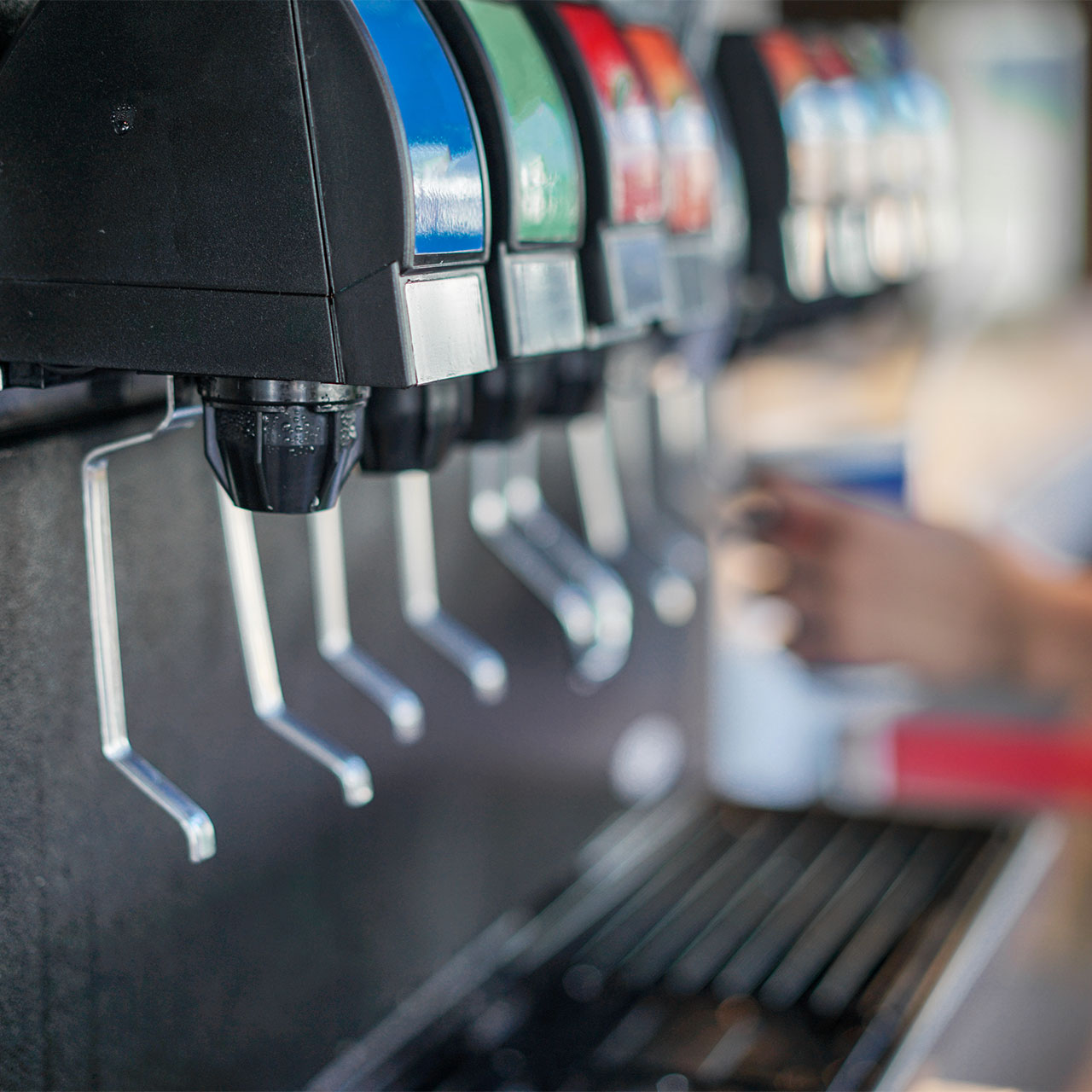
1. Sugary Beverages
You may think a lot about how the foods you eat impact your health, but what about the beverages you drink? Best points out that "Soda, sweetened coffees, and energy drinks are packed with sugar and are very low in fiber or other nutrients." This can "lead to rapid spikes in blood sugar and insulin levels. Over time, these spikes can contribute to insulin resistance, which is a precursor to type 2 diabetes." She notes that the combination of high sugar content and lack of fiber means that these beverages can quickly overwhelm the body’s ability to process sugar, leading to harmful blood sugar swings. Stick to low-sugar beverages when possible.
2. Refined Grains
White bread may be your go-to choice, but it's not the best for your body. Foods like white bread, pastries, and other baked goods made with refined grains are next on Best's list. "They cause blood sugar levels to rise quickly because they lack fiber and other nutrients that help slow digestion," she says. "This can lead to rapid insulin spikes and dips, contributing to cravings and overeating later in the day." Yikes! Whole grains are a good choice to try instead.
3. Processed Snacks and Sweets
Sweet treats and junk food are notoriously hard to resist, but it's important to limit your intake if you care about your health. Processed snacks like chips, cookies, and candy are often high in refined sugar, unhealthy fats, and offer little in terms of nutrients. "These snacks cause rapid increases in blood sugar and insulin, contributing to fat storage and weight gain," Best notes. "The high sugar content not only impacts blood sugar but also encourages unhealthy snacking behaviors and can lead to metabolic issues over time." Luckily, there are many healthy snacks to choose from.
4. Fried Foods
Deep-fried foods like French fries and fried chicken may be delicious, but they're loaded with unhealthy trans fats and calories—which makes them a major weight loss faux-pas. "These fats contribute to inflammation, insulin resistance, and weight gain," explains Best. "The high fat content slows down digestion and can lead to insulin spikes, followed by a sharp drop in blood sugar levels." The combination of unhealthy fats and high-calorie content can significantly impact overall metabolic health, making these foods particularly detrimental to those at risk for insulin resistance.
5. Full-Fat Dairy
While dairy products like milk and cheese can certainly provide valuable nutrients like protein and calcium, it's important to be mindful of the types of dairy you're choosing. Full-fat versions should be consumed in moderation, Best warns. "They contain higher amounts of saturated fats that can impair insulin sensitivity," she says. "Over time, this can contribute to weight gain and metabolic issues." Opting for low-fat, non-fat, or even plant-based options is a better choice for those looking to maintain balanced blood sugar levels.
6. Fruit Juices
Just because it comes from fruit, that doesn't make it healthy! Even 100% fruit juice can cause blood sugar spikes, Best tells us. "The concentration of sugar without the fiber that slows digestion can lead to quick increases in blood sugar," she explains. "These spikes can leave you feeling fatigued and hungry shortly after consumption." Whole fruits are a better choice because they provide fiber that helps moderate the impact on blood sugar. The more you know!
7. Sweetened Breakfast Cereals
Cereal is a tasty, convenient breakfast. Unfortunately, though, even options labeled as 'healthy' can be high in sugar and refined grains, making it a poor choice for your health. "These can cause quick spikes in blood sugar and insulin, leading to cravings and overeating later in the day," Best says. "Opting for whole grain cereals with added fiber and low sugar content can help maintain stable blood sugar levels and provide more sustained energy throughout the day." Got it!


